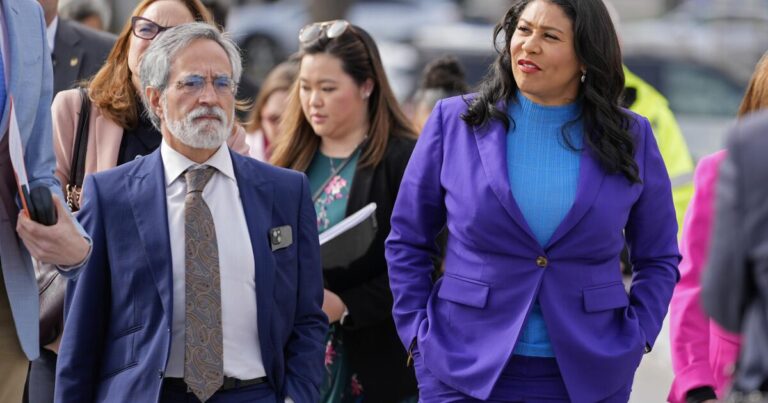The Shift in San Francisco’s Political Landscape Ahead of the Election
As the general election approaches, the once-progressive political scene in San Francisco is facing significant challenges. Currently, there are 46 days remaining until voters head to the polls, and the dynamics within the mayoral race are revealing a notable shift in public sentiment.
Dominance of Moderates in the Mayoral Race
In a recent examination of the San Francisco mayoral race, it has been observed that only one of the five candidates, Aaron Peskin—president of the San Francisco Board of Supervisors—advocates for a progressive platform. Peskin, however, finds himself in the position of the underdog among the candidates.
A Step Toward the Center
Historically associated with progressive politics, San Francisco has seen a trend towards centrist policies in recent years. This March, voters approved measures enhancing police surveillance capabilities and mandating drug testing and treatment for certain welfare recipients suspected of substance abuse. These initiatives were supported by Mayor London Breed, signaling a shift in governance.
Impact of COVID-19 and Public Trust Issues
The aftermath of the COVID-19 pandemic has severely impacted public trust in San Francisco’s leadership and its social fabric. A series of recent voter recalls, including the removal of three school board members in 2022 and District Attorney Chesa Boudin, showcase a growing dissatisfaction with progressive policies amid rising crime and homelessness.
The Influential Role of San Francisco’s Tech Sector
The shift towards moderate politics is significantly influenced by the ascendant tech community within the city. Many tech executives and entrepreneurs have begun injecting substantial funds into campaigns of centrist candidates, furthering the desire for tougher measures against issues such as homelessness and rising retail crime.
Peskins’s Position on Progressivism
Aaron Peskin claims to preserve San Francisco’s identity as a haven for artists and diverse communities, advocating for policies benefiting low-income housing and enhancements to homeless support systems. However, he also emphasizes neighborhood preservation and has resisted reforms aimed at easing housing density, leading some critics to question his commitment to progressive ideals.
Furthermore, Peskin has expressed willingness to support a controversial measure aimed at reclassifying some nonviolent offenses—echoing a complex interplay within his political identity.
Comparing the Labels to the Policies
This evolving mayoral race exemplifies the complexity of political identity. As candidates defy simple categorizations, it becomes clear that the essence of their policies, rather than the labels they adopt, will shape San Francisco’s political future in the coming years.
Conclusion
As San Francisco heads toward the upcoming election, voters are faced with important choices that may redefine the city’s governance style. The city, once a progressive stronghold, grapples with new perspectives on leadership and policy. The evolving political landscape underscores the necessity for candidates to address the pressing concerns of the electorate beyond mere labels.



